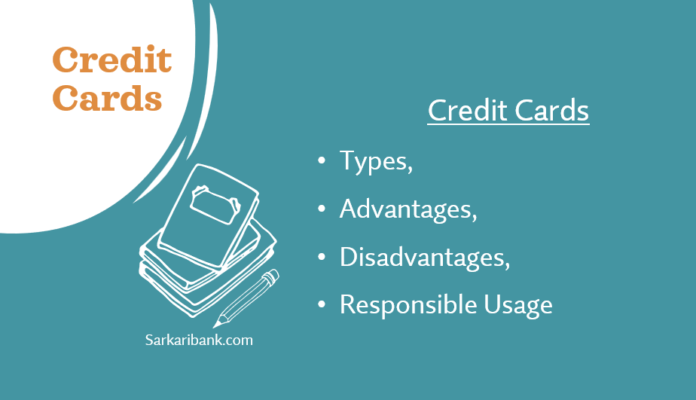Demystifying Credit Cards: Types, Advantages, Disadvantages, and Responsible Usage: Credit cards have become an integral part of our financial lives, offering a convenient and flexible way to manage our expenses. In this blog post, we will delve into the world of credit cards, exploring their various types, the perks they offer, the pitfalls to avoid, and tips for responsible usage. Let’s demystify the credit card world and equip you with the knowledge you need to make informed financial decisions.
Understanding Credit Cards:
Types of Credit Cards:
Credit cards come in various types, each catering to different needs and financial situations. Some common types include:
- Standard Credit Cards: These are the most basic credit cards, offering a line of credit that you can use for everyday expenses.
- Rewards Credit Cards: With rewards credit cards, you can earn points or cashback on your purchases, which can be redeemed for various benefits such as travel, gift cards, or statement credits.
- Secured Credit Cards: Secured cards are ideal for those with limited or damaged credit. They require a security deposit, which serves as collateral for the credit limit.
- Charge Cards: Unlike traditional credit cards, charge cards require you to pay the balance in full each month, with no option to carry a balance.
The Advantages of Using a Credit Card:
Using a credit card can offer several advantages:
- Convenience: Credit cards provide a hassle-free way to make purchases online and in stores without the need for cash.
- Rewards and Benefits: Many credit cards offer rewards such as cashback, travel miles, or discounts on specific purchases.
- Builds Credit History: Responsible credit card use can help establish and improve your credit score, which is crucial for future financial endeavors.
- Emergency Fund: Credit cards can serve as a financial safety net during unexpected emergencies.
The Disadvantages of Using a Credit Card:
While credit cards offer many benefits, they also come with potential drawbacks, including:
- Interest Charges: Carrying a balance on your credit card can result in high-interest charges, which can quickly accumulate.
- Overspending: Easy access to credit can lead to overspending and accumulating debt.
- Credit Score Impact: Late payments and excessive credit card debt can negatively impact your credit score.
Tips on How to Use a Credit Card Responsibly:
To make the most of your credit card while avoiding financial pitfalls, consider these tips:
- Pay Your Balance in Full: To avoid interest charges, strive to pay your credit card balance in full each month.
- Set a Budget: Establish a monthly spending budget and stick to it.
- Monitor Your Statements: Regularly review your credit card statements to identify any unauthorized or erroneous charges.
- Avoid Cash Advances: Cash advances often come with high fees and interest rates. It’s best to avoid them.
- Pay on Time: Timely payments are essential for maintaining a good credit score. Set up reminders to avoid missing due dates.






